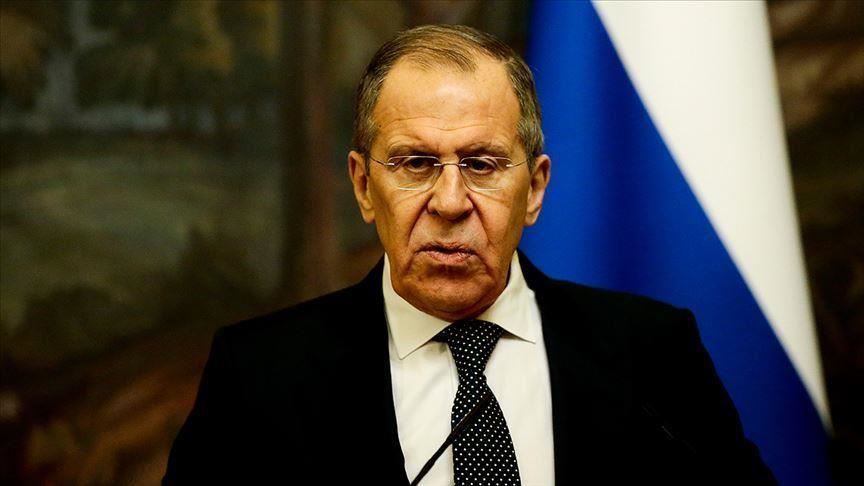'Russia, Turkey have common objective in Karabakh'
Agreed with Turkey to establish observation center on Azerbaijani territory, says Russian foreign minister

MOSCOW
Russia and Turkey have a common objective in the Upper Karabakh region to monitor the peace deal between Azerbaijan and Armenia that ended weeks of armed conflict, Russia's foreign minister said on Thursday.
"We agreed with our Turkish partners to establish an observation center on the territory of Azerbaijan, which will not be located near the conflict zone," Sergey Lavrov told a news conference.
Responding to a question by an Anadolu Agency reporter on Turkey's efforts for ending the conflict through diplomacy, he noted that Turkish President Recep Tayyip Erdogan and Russian President Vladimir Putin have held several phone calls and share similar views on the issue.
He said Moscow will continue cooperating with Ankara in other areas, including Syria, adding that they were interested in solving problems at their borders and across the world.
Turkey's Foreign Minister Mevlut Cavusoglu said earlier on Thursday that Ankara will play an equally important role as Moscow in monitoring the peace deal through the peacekeeping center in Upper Karabakh.
A memorandum of understanding (MoU) setting up a joint Turkish-Russian center to monitor the peace deal was signed on Wednesday morning.
Conflict, peace deal
Relations between the ex-Soviet republics have been tense since 1991, when the Armenian military occupied Upper Karabakh, also known as Nagorno-Karabakh, a territory recognized as part of Azerbaijan, and seven adjacent regions.
Fresh clashes had erupted on Sept. 27, and the Armenian army continued its attacks on civilian and Azerbaijani forces, even violating humanitarian cease-fire agreements for 44 days.
Baku liberated several cities and nearly 300 of its settlements and villages from Armenian occupation during this time.
Before the second Karabakh war, about 20% of Azerbaijan's territory has been under illegal Armenian occupation for nearly three decades.
On Nov. 10, the two countries signed a Russia-brokered agreement to end the fighting and work toward a comprehensive resolution.
Azerbaijani President Ilham Aliyev hailed the agreement as a victory for his country and a defeat of Armenia, saying Baku's military success enabled it to gain an upper hand to end the three-decade-long occupation of its territory.
Meanwhile, Armenian Prime Minister Nikol Pashinyan said he had signed an "unspeakably painful" deal that allowed Azerbaijan to claim control over regions it took back in the fighting.
The Turkish leadership also welcomed the truce, terming it a "great victory" for Azerbaijan.








